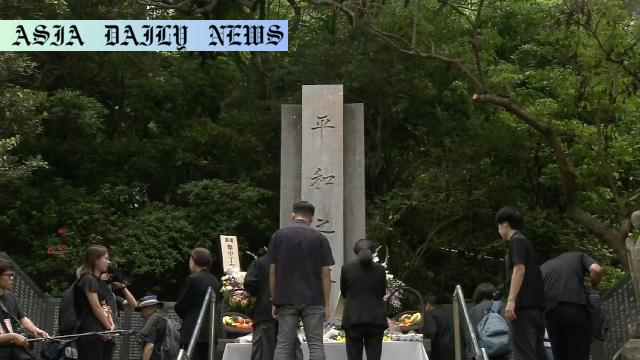Okinawa Battle: Remembering the devastating ground battle that resulted in over 200,000 fatalities during WWII.

Remembering the Tragic Battle of Okinawa
The Battle of Okinawa, one of the bloodiest confrontations of World War II, marked its 80th anniversary this year. Known as the ‘Typhoon of Steel,’ the battle caused a staggering loss of human life—over 200,000 people perished, including Japanese civilians, Imperial soldiers, and American troops. The U.S. invasion on the Kerama Islands, west of Okinawa’s main island, was the prelude to the full-scale ground warfare. Among these losses were around 1,200 individuals from Zamami village who tragically succumbed to both combat fatalities and mass suicides prompted by severe propaganda of the time, fueling terror among residents.
The Role of Propaganda and the Mass Suicides
Tragic tales of coercion and manipulation underscore much of the carnage in Okinawa. As the Imperial Japanese Army distributed hand grenades to civilians, they incited fear with the idea that capture by American forces would lead to torture and disgrace. This led to the mass suicides of more than 560 islanders and countless others on Okinawa’s main island and Iejima. Survivors recount these chilling moments, reflecting on how deeply ingrained misinformation clouded judgment and resulted in needless loss of life. The Tower of Peace, a cenotaph in Zamami village, stands tall as a painful reminder of these lives lost.
Survivors’ Plea for Peace and Preservation of History
As survivor numbers dwindle with time, challenges increase in preserving the narrative of Okinawa’s dark history. Takaesu Toshiko, a 93-year-old survivor, shared a poignant message: ‘I don’t want my grandchildren and great-grandchildren to experience the fear and pain I went through.’ Her heartfelt plea resonates as a call for continued peace and an urgent reminder to pass down such stories to younger generations. Through events like the memorial service in Zamami, locals unite to honor the lost and ensure that this historical tragedy serves as a lesson for humanity to embrace understanding and avoid repeating past mistakes.
The Global Call for Reflection
The Okinawa battle highlights universal themes of reconciliation, resilience, and the importance of historical memory. The scars left on the Okinawan people are not just a Japanese tragedy but a shared chapter in global history. Learning from such catastrophic struggles helps foster global peace and mutual respect. Japan, through its efforts to document and educate, underscores the necessity of these conversations in schools and public forums.
Moving Forward with Hope
As the world remembers the Okinawa battle, the survivors’ stories are not only a testament to tragedy and resilience but a solemn reminder. Their voices echo through the commemorations and memorials, urging humanity to prioritize peace over war. The next generation holds the key to a peaceful future by absorbing these lessons and ensuring that sacrifices made during times of war were not in vain.
Commentary
The Necessity of Preserving Historical Narratives
The 80th anniversary of the Okinawa Battle serves as a solemn reminder of the human cost of conflict. Reflecting on such tragic events is not just about paying tribute to the victims but also about understanding the importance of peace. Narratives like those of Takaesu Toshiko are invaluable in keeping the lessons of history alive. Her hope for the younger generation to live in peace resonates deeply in today’s turbulent geopolitical climate.
The Impact of Misinformation in Times of Crisis
The mass suicides that occurred during the Okinawa battle are a tragic reflection of how misinformation can lead to devastating outcomes. The Imperial Japanese Army’s role in instilling fear and mistrust among civilians underscores the power of propaganda. This serves as a historic lesson that truth and transparency are vital, especially during times of crisis. It’s a chilling reminder that fear, when weaponized, can result in catastrophic decisions and irreversible tragedies.
Passing Peace Messages to Future Generations
The dwindling number of survivors presents challenges in keeping the narrative of Okinawa alive. However, it also highlights the responsibility of the current and upcoming generations to actively learn and share these stories. Memorial services, cenotaphs, and educational programs are vital tools in ensuring that these lessons are not lost to time. The battle for historical remembrance is just as important today as the battle fought 80 years ago.
A Universal Lesson in Resilience
While the Battle of Okinawa focuses on Japan, its lessons are universal. It’s a reminder of the resilience of the human spirit, the brutality of war, and the potential for peace. By sharing such stories widely, we not only honor the memories of those lost but also contribute to a global conversation about preventing future conflicts. In doing so, we ensure that ‘never again’ is more than just a phrase, but a commitment to humanity’s collective future.


